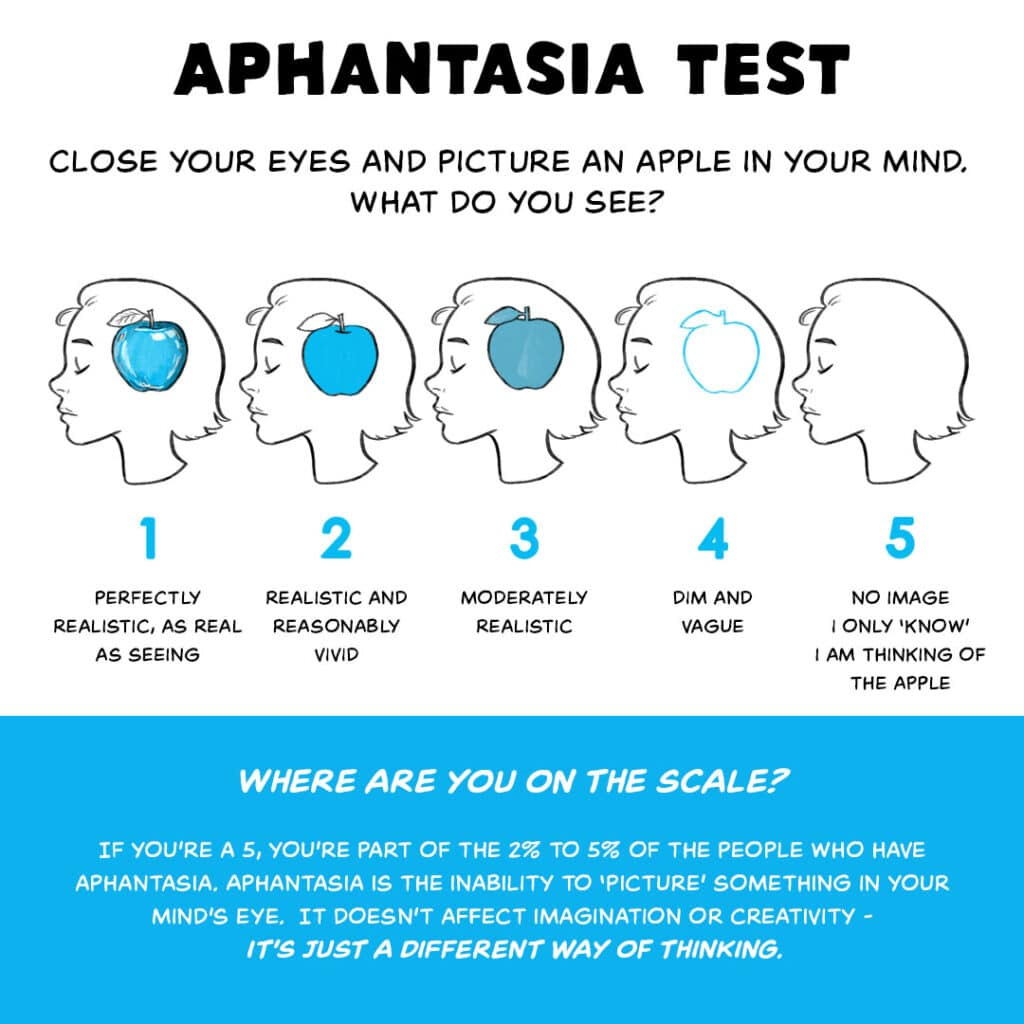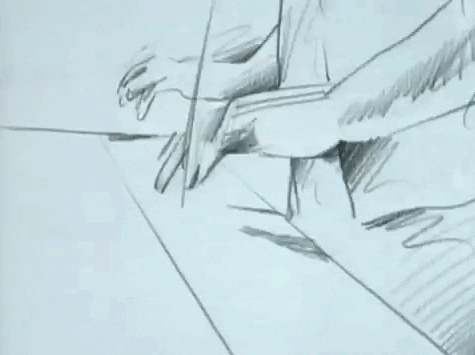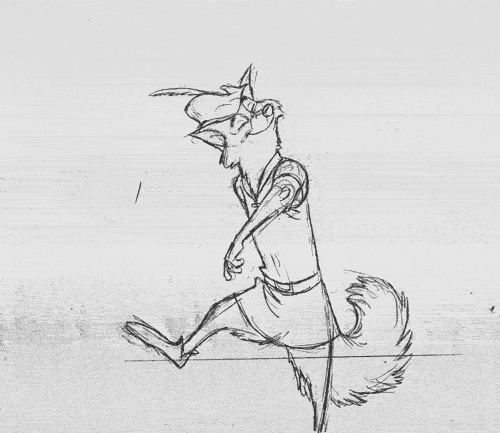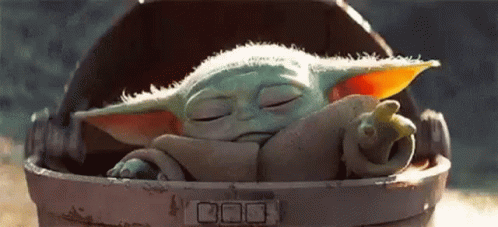📌 What We "See" in Our Heads
Everyone's brain works both beautifully and differently—and it was fun to consider what MY normal working order is!
If someone tells me to imagine an apple1, what do I see? <closes eyes>
Well, for me, when I "think apple," I see a photo-realistic, pinkish-red and yellow-green Fuji apple with a little white sticker and itty-bitty writing that doesn’t say anything in particular (kind of like the bottom row of letters at a vision test).
Now, on to the reason for this thought exercise…

It seems I'm in Group 1 (or possibly 2, if you count sticker writing) here on this particular test. Here's the thing, though: to me, this test doesn’t seem all that interesting2. Regardless of what you see in your head, an apple is a known thing—you know enough to identify it in real life, right? No one past toddlerhood is, like, picking up a banana and taking a bite of the peel and fruit and thinking they are taking a bite of an apple. Each of these group's brains work just right, so it doesn’t seem like very usable information (at least to me).
Instead, as a writer, what I want to know is: how does my imagination work? What do I conjure when it's not a "real" thing I’m simply recalling in whatever way we typically do—but something I'm dreaming up, on the spot? This may seem similarly useless, but maybe it's not. If I were to learn I did not as quickly conjure certain things in my head easily (or at all), that might be something for me to pay extra attention to in my writing. What am I leaving out (without realizing it)?
It turns out there are many kinds of imagination. I pulled the ones below directly from "Aphantasia—A Blind Mind’s Eye."
Visual Imagination – The ability to imagine pictures in your mind without actually seeing them with your eyes.
Motor Imagination – The ability to imagine movements in your mind without actually moving with your body.
Auditory Imagination – The ability to imagine sound in your mind without actually hearing with your ears.
Olfactory Imagination – The ability to imagine smells in your mind without actually smelling with your nose.
Gustatory Imagination – The ability to imagine tastes in your mind without actually tasting with your tongue.
Tactile Imagination – The ability to imagine sensations in your mind without actually feeling with your body.
So here are some tests I gave myself3, related to those areas!
» First, to test visual imagination, I imagine a descriptive phrase as I'm typing (going with whatever pops into my head first): a peppermint-stripe zebra (no idea where that came from, but…): what would that look like?
The first thing that came to my mind was the Zebra from Fruit Stripe gum. It just floated in my mind’s eye, disembodied, just the neck up of that zebra. The in-my-head Peppermint Zebra is black and white, with red accents.

» Now, to test motor imagination, I close my eyes again and imagine Peppermint Zebra interacting with another zebra. It's ordering coffee but being VERY indecisive, and everyone’s getting annoyed.
This is always what happens: it's gone right into cartoon land. But not new, CGI, realistic cartoons—the herky-jerky old, black and white4 cartoons. Zebra has no color anymore in my mind; those accents have disappeared and are just shading. In fact, the thing closest to what I see, though the characters themselves would not be as realistically drawn, is the animation style of the "Take on Me" video by A-Ha. (I've always thought of them as the kind of "behind the scenes" practice sketch animations they used to sometimes share as extra footage on Disney movies back in the day.) My mind follows that now-established MC, and I'm watching them. Occasionally, I might morph into seeing things from their perspective, but it's the same lurchy black-and-white sketchy stuff.


One interesting note: even though the visuals of the movement are sketchy, I can definitely "feel" them without moving my body. For example, I can easily imagine the feel of a gust of wind rushing through its mane and moving the hairs along the back of its head, giving Peppermint Zebra the shivers, and how PZ would start to get dizzy if it were to spin like a Cossack dancer (and if I let myself, I can make myself feel dizzy enough to need to stop imagining).
Interesting, sometimes I even catch myself doing the thing the character does when I'm writing. Momentarily stopping typing to reach for a doorknob and then back to typing about reaching for a doorknob, for example.
» Now I close my eyes again to test my auditory imagination: what does zebra sound like? Can I "hear" PZ if it makes a realistic zebra-braying sound? Can I "hear" PZ if it’s talking anthropomorphically?
For whatever reason, this is easy and fun for me. Yep. The bray in my head is clear as day. The anthropomorphic Peppermint Zebra initially talks like Eddie Murphy, but I quickly realize I'm just remembering Madagascar movies and force myself to think of something else. And now the zebra is speaking with an old German accent, not unlike Werner Herzog. Interestingly, I can't seem to "make up" a new voice. I have to draw from existing audio knowledge; still, that knowledge has a LOT of options and includes voices I have made up myself over the years. It’s easy for me to switch from zebra sounding like Werner to, say, Billy Corgan or Lucille Ball or me "doing" the voice of my Grandma Louise. Peppermint Zebra is an impersonation master (and just like that, PZ sounds like Bill Hader, which settles the question of gender for this mind-character).
» And to test my olfactory imagination, can I imagine a smell?
Uh. No, apparently, not at all! 😂 When I imagine Peppermint Zebra frolicking in a lavender field and what it smells like to him, I easily imagine the scratchiness of the stems and the way he might feel, kicking his back legs up (and maybe overextending and his lower back hurting!), but I can't conjure the smell of lavender, though I definitely know what lavender smells like (meaning, I could easily recognize it in a line-up). I just think, "he smells something…and it's lavender." It was as if lavender were a name and not a sense. Also, if I think, "What would honeysuckle and basil smell like together?" no particular smell comes to mind, just possible adjectives.
» And to test my gustatory imagination, can I imagine any tastes?
Okay, so let’s imagine that Peppermint Zebra is enjoying some grass and then finishes his meal by popping a peppermint as a palate cleanser. Well, I know what grass tastes like (somehow), but I imagine a pale imitation of what it would taste like to have a real mouthful of grass. It’s making my mouth feel dry—but that’s mainly it. And I can imagine a kind of hay-ish blandness, which isn’t right at all—green grass tastes pretty strongly, kind of a sour-fresh taste. LOL! And now I’m trying to imagine peppermint, and I think my mouth is watering a tiny bit, but it’s not doing much? This is funny to me because I love to cook and to eat! And I know, for example, that sometimes I will taste something and "know" it needs a complementary flavor (something lemony like shiso, or something sharp like cheddar, etc.), but I think all that is based purely on rote memorization of authentic tastes that I'm processing only at the moment because my gustatory is only offering pretty pale imitations! Interesting!
To further test, I try to imagine what honeysuckle and basil would TASTE like together, and, eh, I can kind of do it? I know the honeysuckle has a watery sweet taste, and the basil is a little sweet but just a little sharp and green, so I can imagine the two together might taste like in a general way without them being really in my mouth. Still, I don’t "taste" them really. I just sort of notice the sweet taste of my spit and imagine a bit of a peppery note added to that.
» And to test my tactile imagination, with my eyes closed, can I imagine what Peppermint Zebra might feel—sensations, etc.?
Whoops! I guess I already did this. Yes. This is pretty easy for me, tactile sensations. This is part of why I don't read true crime accounts in the news or books—it is way too easy for me to imagine, really imagine, what it feels like to be choked or thrown off of something high and then land painfully, etc. I am just not a fan of these kinds of painful, vivid details at all (I don't need them!), and it's why I have always loved an Agatha Christie-style post-event mystery instead of anything immediate or immersive (in terms of the crime itself happening on the page).
What's far more challenging is to feel (as if I were Peppermint Zebra) his emotional feelings. To test that, I imagine a scenario where Peppermint Zebra is watching his friend play in a soccer game, and then his friend tries to bicycle-kick the ball and jacks up his knee, landing with a crunch sound. Suppose I imagine myself as Peppermint Zebra, looking at his friend doing this. In that case, I imagine Peppermint Zebra feeling a painful twinge in the same spot his friend just hurt and feeling frozen (ice running through his veins), terror building as he wonders what the crunch sound was? But that takes a lot more purposeful thought to arrive at! Usually, I would imagine Peppermint Zebra's physical reaction (hooves over his mouth, eyes wide) without forcing myself to go farther!
Further enjoyable reading on this topic (far more enjoyable than what I write) can be found right here (which filled my heart and gave me lots of justification for the time I spend in Elayne La-La-Land):
And right here (I definitely do NOT have synesthesia and never even imagined this was a "thing" until I read this):
Our brains are astounding things, running people capable of astounding things. In my case, I'll be keeping a little more keen eye on remembering to include smell-related details in my writing, when appropriate, and also to consider taste—since apparently neither of those are my go-to's when I'm daydreaming away.
Your "just so grateful to my Medulla Oblongata for taking care of my breathing and heartbeats so that I can spend my thought time elsewhere" friend,
Elayne
My posts are always free, but my focus isn't; if you found this post interesting or useful, please consider ♡' ing it so I know. Thank you!
I have to be honest. My first thought when someone tells me to do something is always, “No! I WILL NOT! YOU ARE NOT THE BOSS OF ME!” But this is a theoretical exercise, so I’ll go with it this one time.
I mean, I find it interesting that some people just have the idea they are thinking of an apple, not any visual at all. But it doesn’t seem life-changing to me, outside of the re-acknowledgment that we can’t truly know anyone else’s mind; not really.
I *adore* bossing myself around!
I wonder if this may be why I am always SO scared/overwhelmed when it’s time to use color in my art. But that’s a line of thought for another day.









Thanks for sharing this. I had a lot of thoughts about what kinds of imagination I can tap into and whether I didn't have certain types or if they were just undeveloped.
So, I'm like a 4 on the aphantasia test, although if I really focus hard, I can zoom into like a 2.5 but it's only for a very small area of an image or object and it's hard for me to hold onto it or zoom out and see a detailed image. Like visualizing an apple, I can get to a realistic looking one, but like I have to 'stare' at the stem first, and then when I try to step back and see the whole apple it fades or I focus on the skin and lose the clarity of the stem. Interestingly, I do also tend to skimp on setting and description details. Especially when drafting.
For the imagination types, I have the visual in a more limited way as mentioned. But I also have the motor imagination similar to what you describe, it's like a less-defined version of the Robin Hood gif you shared. I see outlines of things moving. This is what it looks like when I am blocking or choreographing a tricky movement or action scene while writing.
But I think my auditory imagination might be the strongest. For example, I hear character voices and dialogue in my head. A character's voice or hearing someone speak a line of dialogue is often the first thing that comes to me for story ideas. And I often hear whole conversations of banter in my head too. Sometimes I write a whole scene without anything else (ie. dialogue tags, actions, setting) because I just need to quick catch the conversation. And then later I go back and add the rest. I know a lot of people don't have an internal monologue, but I definitely have one.
I'm not sure I have the olfactory, gustatory, or tactile imagination or if those are just undeveloped. I wonder if there are specific exercises to strengthen different types. I can identify what needs to be added to a story scene for those last 3 senses but I'm not sure I fully imagine them. And they are often only added in later revisions because they are not top of mind when writing a scene. I have to specifically ask myself, are there any tastes or smells in this setting that I can add in?
I do think I also have the emotional imagination that you mentioned. Is that also empathy? I'm not sure. But I can easily imagine what someone else or a character is feeling. It's rarely a clear physical response though and something more nebulous.
Anyway, I'll probably be thinking about this for a while. So, cheers!